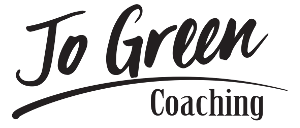How to have confident career change conversations
Photo by Priscilla Du Preez on Unsplash
Who are you talking to about your career change? If it’s nobody or only your nearest and dearest, chances are you’re teetering on the brink of one of these five classic traps for career changers. If combing job sites, doing a zillion online quizzes, and compiling lists of training courses means you’re too busy to talk, maybe stop now before your brain explodes.
Career change conversations broaden your horizons
When it comes to figuring out how to change careers, data doesn’t deliver. Humans do. If you’re keen to kickstart your career change, look for people, not jobs.
There is no substitute for career change conversations with people doing intriguing things in places you imagine you might like to be. These structured or random encounters with humans happy to talk about their careers are also known as informational interviews.
Not ready to get off Google? Scared of stuffing up or looking stupid?
Here’s how to get curious, get organised, and get cracking on having career change conversations.
Get your head in a good place
Check your career change mindset. Career change conversations work best if you’re willing to be open, honest, and vulnerable. A fixed mindset tends to make you competitive and keen to prove your expertise. A flexible mindset makes you more comfortable with being a curious novice.
Get your beginner’s mind on. Treat yourself to three and a half minutes of veteran journalist and broadcaster Dan Harris on never feeling like an expert and the art of making and taking opportunities.
Trust the kindness of strangers. Few of us find it easy to ask for help, but it almost always turns out well. Because most humans are hardwired to want to help. My own career conversations yielded rapid results, including courses, contracts, and some of my first coaching clients. Read any of my career change client’s stories, and you’ll hear about how generous people supported them to transition to a new career.
Get organised
Be clear on why you’re doing this. You’re not job hunting, although a job might magically appear on the spot or in the future.
You’re curious to learn about:
The day-to-day charms and challenges of a role, an organisation, a sector
Your target human’s background and experience – what skills do they have? What drew them to the job? What would they love to do differently?
Prepare some questions. Match these to your career ‘must-haves.’ If flexible conditions, high autonomy, loads of variety, and challenge matter, ask about them. If you’re concerned about retraining or starting at the bottom, ask about sought-after skills.
Be prepared but be ready to veer off into interesting areas you’d never even considered. Always ask your person who else they think you could talk to and what courses, groups, podcasts or organisations they recommend you look at.
Get connected
Start with who you know and who they know. Ask, email, post on social media. Keep it simple and direct. Try something like, ‘I’m looking to talk to people working in X role/sector, could you put me in touch with someone you know?’
If you’d prefer a more fulsome approach, try adapting one of these scripts for cold emailing.
Move on to who you don’t know (yet.) Contact people whose work or organisation you admire. Go directly via social media, LinkedIn or interest groups. You have nothing to lose.
Perfect your pitch. People are generous and willing to help but make it easy for them to make time for you by:
Being crystal clear about being a curious career changer who is not asking for a job
Setting a time limit and suggesting a venue - thirty minutes over coffee or on Zoom
Offering a range of times and dates and asking what else might work for them
Look out for happenstance. Start searching out career conversations and get ready for some (seemingly) random ones. Swap waiting for a single internet fuelled light bulb moment for a series of sparky real-world encounters and watch what happens. The people you talk, to talk about you to others. Suddenly, career change conversations start popping up everywhere.
Photo by Ehimetalor Akhere Unuabona on Unsplash
Follow up. Chances are your generous-spirited person is curious about you too. So, follow all your career change conversations with a brief thank you email that mentions a valuable insight you gained during your chat.
If you connect well, you can also send:
An update email describing how their help has supported your career change
An article or a web link you think they’d find interesting
Be pleased by the outcome, whatever it is. You can never predict the outcome of a career change conversation. I’ve had scheduled 30-minute chats that stretched to three high-energy hours. I left with a buzzing brain and a fistful of further contacts. I’ve also had chats when I knew within minutes that I’d never work in that role or field. I left with a massive sigh of relief, and a potential career crossed off my list.
Need help to have confident career change conversations? Book a chat.
By Jo Green, Career Change Coach
I know that when you find what you love, heart and soul, your life changes. I work every day with people who are reshaping their current careers, starting new enterprises or searching for a new direction. Basically I help people who don’t like their job to figure out what to do instead!
As a Careershifters and Firework Advanced Certified Coach and experienced career changer myself, I can help you figure out what fulfilling work looks like for you.
Drop me a note to organise a free 20 minute consultation to chat about your career change and how coaching could help.





